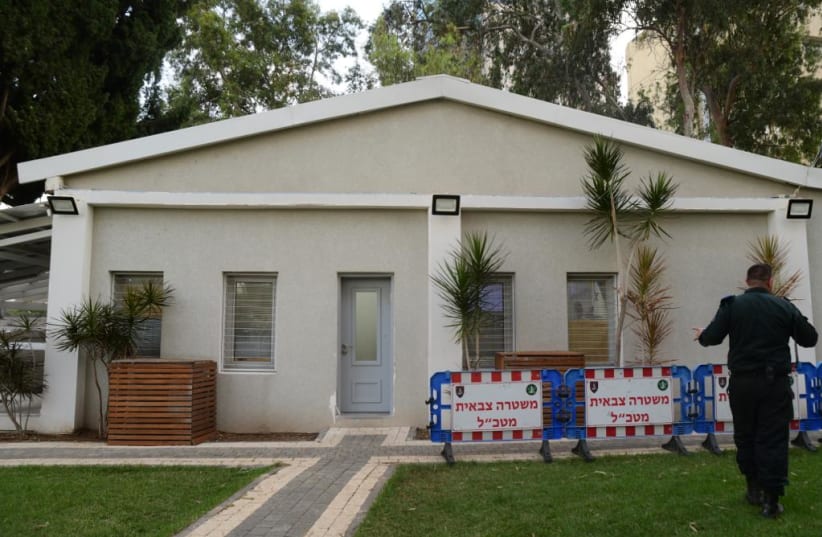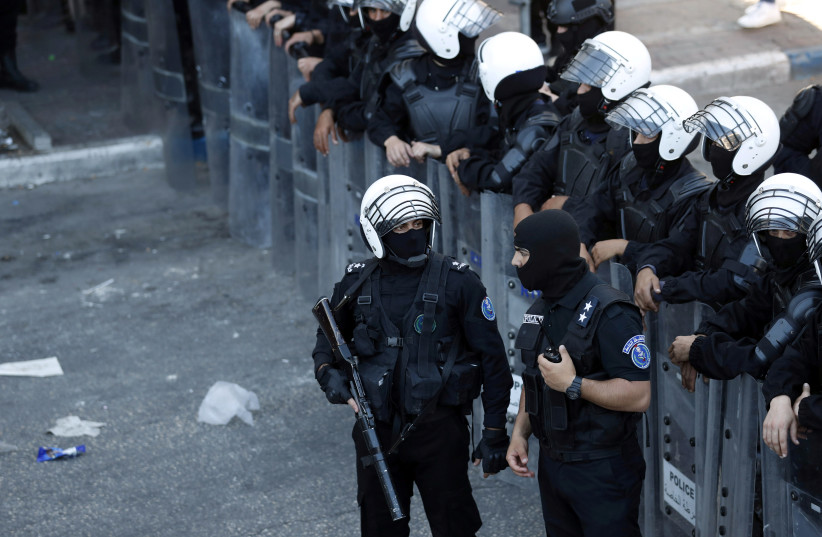The IDF military court in the West Bank sentenced two 19-year-olds to 14 years and six and a half years in prison respectively and fined them for raping a Polish tourist near Bethlehem three years ago.
Another defendant's involvement is still pending trial and another suspect has yet to be arrested.
The tourist and her partner drove towards Beit Jala, near Bethlehem, in February 2020.
The two defendants, who were both around 17 at the time, were hitchhiking through the same area along with two others.
The two recognized the couple and blocked their car to make them stop, while one of them introduced himself claiming to be a Palestinian police officer.
The four people then "arrested" the tourist and her partner, tying up the latter who begged them to let them go before grabbing the victim and taking turns raping her.
The defendants recorded some of the incident and forced the victim to look at the camera, while one of them held a knife and the other made sure her partner didn't escape. When they finished, they stole the woman's cash and jewelry before puncturing their car's tires and leaving the scene.
The two defendants, then minors, were arrested by Palestinian Authority police but were released six months later. Afterward, the IDF and Israel Police arrested them and kept them in custody.
"The defendants' actions were carried out with great cruelty and inhumanity. One of the even carried a knife," the ruling said.
"During the incident, three of the attackers committed several acts of rape, simultaneously and one after the other. The victim was helpless, crying and begging for her life. Throughout the whole incident, none of the four suspects showed even a shred of humanity, compassion or mercy towards her."
"During the incident, three of the attackers committed several acts of rape, simultaneously and one after the other. The victim was helpless, crying and begging for her life. Throughout the whole incident, none of the four suspects showed even a shred of humanity, compassion or mercy towards her."
Court ruling
The sentencing shows that the reason for the difference in punishment for the two defendants has to do with their level of involvement in the incident itself.
"The first defendant was actively dominant throughout the entire incident and was an active participant in the rapes," the ruling said. However, the second defendant didn't actually rape the woman himself but only watched over her partner while the others raped her.
The judges also noted what the attackers did to the victim's partner. "After tying him up and leaving him nearby, they even brought the victim closer so he could see the rape up close. Their evil persisted even after they were satisfied. They photographed the victim in humiliating positions."
The verdict also says that since the incident happened, the victim said she "suffers from blood pressure problems, breathing difficulties, lack of sleep and can't sleep without medication. She's afraid to leave her home alone in the evenings and suffers from constant stress. Due to her fears, she said she underwent surgery to remove her uterus."
Israel's sexual offense laws don't apply in the West Bank
Judge Lt.-Col. Meirav Hershkovitz Itzhaki wrote in her ruling that "I found it appropriate to contact the local council to consider enacting the 2006 Law on the Protection of the Public from Committing Sexual Offenses in the region. More than once, sex offenders arrive at these courts convicted of serious and less serious crimes against residents of the area and Israelis and even tourists.
The judge continued, saying that "It seems that the reasons behind the law are especially relevant for the area. Therefore, it is appropriate to examine the possibility of adopting the laws applicable in Israel to this area, while making the required changes, in order to protect the public from sexual offenses."
Attorney Lt.-Col. (res.) Ran Cohen Rochbeger, former chief military defense attorney, told Walla about the amendment to the law.
"This is an Israeli law that doesn't apply in the West Bank and a similar legislation hasn't been enacted in the area. One of the most important elements of this law is the obligation to review sex offenders by examining the defendant's dangerousness and criminal background before sentencing them," he explained.
He further said that "the amendment introduced by the military in the West Bank several years ago instituted an obligation to conduct such a review before sentencing minors, but there isn't any obligation to do the same for adults."
According to him, "The disparity in the tools the IDF court in the West Bank has, compared to Israeli courts, in relation to adult Palestinian sex offenders is extremely significant and can lead to miscarriage of justice."
However, Cohen Rochberger also explained the difficulty in applying the law in the West Bank.
"It is difficult to imagine that an inspector could enter Area A or Area B. Entering these areas is dangerous and every entry made by security forces is followed by clashes and tensions. It's hard to imagine a police officer or inspector would be able to enter the home of a Palestinian sex offender."
He continued: "At the same time, some of the arrangements in the law to protect the public against sex offenders can, in my opinion, be applied in the West Bank even today, like the need to conduct a review before sentencing. In order to do that, all that is needed is a meeting with the defendant, which is part of being detained. This important information regarding the degree of risk he poses will give the judges a better tool to hand down a correct and just sentence. The judges will be able to be more severe with those viewed as being more dangerous and can be lenient with those who are not."

